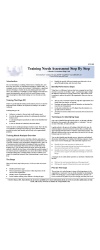Take a look at the following list of jobs I’ve held during and after my stay in higher education institutions.
- Animator at half way house for those with mental problems (i.e. bipolar, schizophrenia)
- Research assistant on social psychology projects
- Teaching assistant — Psychology
- Teaching assistant — Faculty of Education
- Journal Board member — Educational Journal (peer-reviewed)
- Data analyst for professors and students doing quantitative research
- Clinical and counselling instructor (community college)
- Data analyst at school board
- Instructor Trainer and Educator (community college)
- Supervisor practice teaching (high school level)
- Instructional designer provincial government
- Organizational and staff development officer (government
- Business owner
- Book author (more books than I can count)
- Web owner and designer of sites accruing in the many million visitors
All of the above were a direct result of attending both undergraduate and graduate institutions. Very few, by the way, had much to do with the actual degrees — which ultimately are just pieced of paper.
What Do You Notice About These Jobs?
Take a look again. Does anything jump out at you?
Notice that while there’s some commonalities among these various jobs, by and large they are quite different from each other. Apart from the fact that they are all “white collar type jobs” that involve knowledge and skill, they have not so much in common.
Believe it or not, this flexibility relates to the reason I went to university and stuck with it far into the graduate school experience.
I wanted to have maximum freedom for the rest of my life. I couldn’t imagine doing the same job for thirty years, or even working in the exact same sector for such a long time.
I wanted the freedom to move around, to develop multiple skill sets that were transferable and transportable.
University education gave me that gift. University gave me the base of learning, understanding, and skills on which to build new skills on into the future.
Career Freedom Requires A Lot From You
If a university education is going to provide you with long term career freedom, there’s a number of prerequisites that have to do with you.
You need to love learning, and it helps a lot if you love being in a learning environment such as you’ll find in higher education.
You need to continue to learn in each job you hold, whether during or after university.
You need to have a passion for what you are studying, at least eventually.
If you look at going to university as a means to obtain a “job”, then that’s what you might end up with — a job, and that’s not going to get you the flexibility you might like in your future.
You need to put the emphasis on LEARNING and experiencing things while in university. If you see a degree as the goal, forget it. Again, you’ll miss out on all of the learning opportunities at university that will help you build your “freedom base”.
There’s more, of course. Some degree of talent and aptitude is important. Some specializations and disciplines may be more likely to help you build your future freedom (e.g. social sciences, psychology, education tend to have big overlapping of skills sets that can easily move from one to the other).
Above all, you need to commit and excel, maybe not earlier in your university education, but at least by the end. You need to work.
The investment is a big one. But the payoff is something that is, as they say “priceless”. The ability to choose different careers at different times, and ultimately to say, “Take this job and shove it (because I can do other things).






